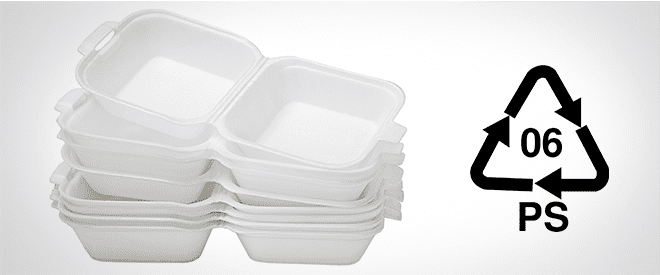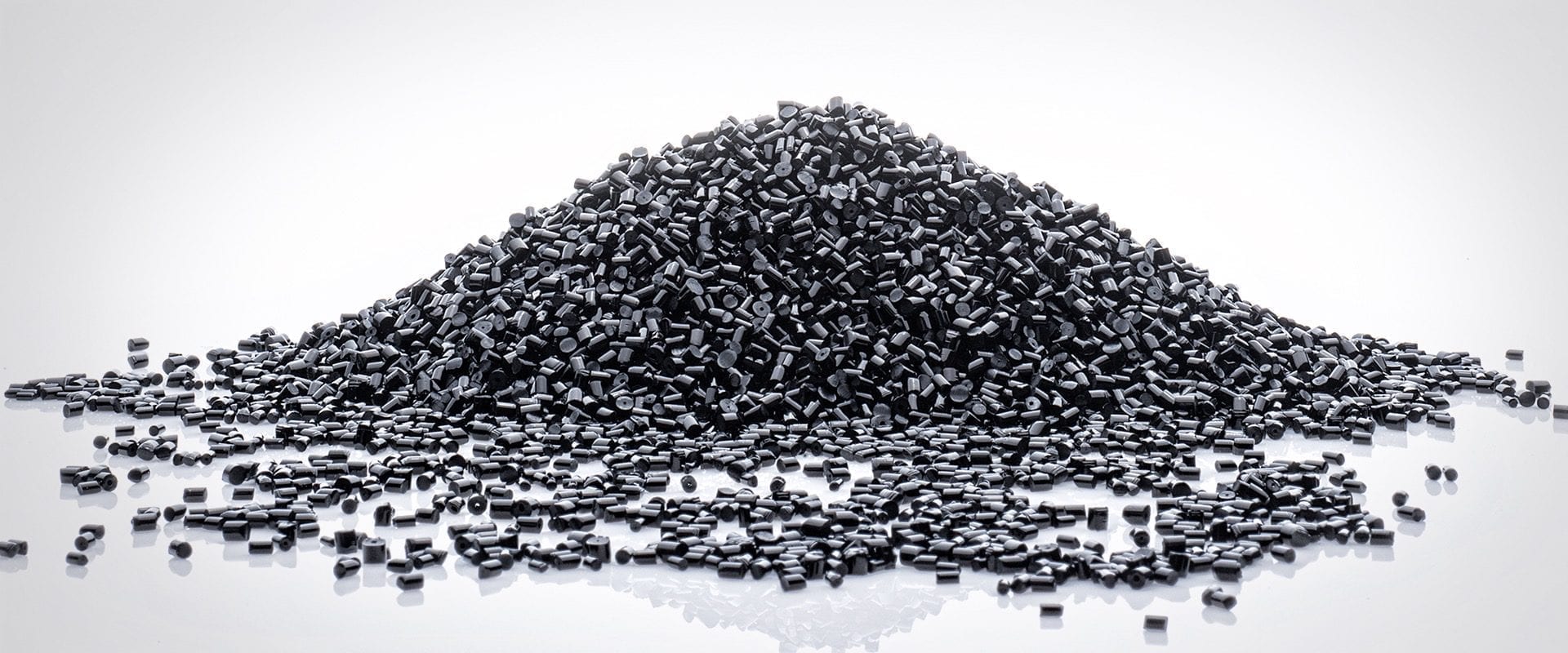Degassing & Decontamination
PS recycling with LNO

In 2018, the MRS Extrusion Technology obtained a LNO for the processing of post-consumer polystyrene to food contact products. Polystyrene post-consumer waste can be reprocessed on the Gneuss MRS extruder to sheet for foamed and rigid food contact containers.
PE/PP recycling
The MRS devolatilization concept can not only remove water vapor from the melt efficiently; it is also an efficient system for the removal of harmful or unwanted volatiles from the polymer melt. Heavily contaminated materials can therefore be reprocessed with a drastic reduction in odor.
A manufacturer of film for packaging processes scrap printed LDPE blown film to carrier bags. As this film had been previously used for packing fish, it had assumed an unpleasant odor.
It was previously necessary to use a mixture of 15 % washed „fish“ film waste with 85 % virgin material to reduce the odor problem. Thanks to the MRS extruder it is possible to add 75 % recycled material instead of the previous 15 %.
The efficiency of the MRS technology was also proven in the manufacture of PP recycled compounds for the automotive industry. This work was carried out together with the Fraunhofer Institute in Pfinztal (Germany) which proved the results using themal desorption analysis. A large proportion of the volatiles are extracted from the polymer. The residual volatile level is 22 % at 50 mbar and only 10 % at 20 mbar.
In 2009 and 2011, trials by the WRAP organisation already showed that with the help of the Gneuss MRS Recycling Process, it is feasible to achieve the conditions of the American food safety authority challenge test for processing post-consumer polypropylene and polyethylene for food contact applications. The results of this test were published by WRAP under the titles “Commercial Scale Mixed Plastic Recycling – a report on the technical viability of recycling mixed plastic packaging waste from domestic sources on a commercial scale in the U.K“ und “Development of a Food-Grade Recycling Process for Post-Consumer Polypropylene“ .
PA recycling
Heavily contaminated polyamide waste can be processed into valuable secondary raw materials using MRS extrusion technology. For example, ground polyamide residues which an English recycler processes into pellets and new products using Gneuss recycling technology. Polyamide residues accumulate in large quantities when deep-sea oil pipelines are no longer needed after an oil well has dried up and are brought ashore. However, this high-quality plastic waste is heavily contaminated by oil due to decades of use. In addition to oil residues adhering to the surface, oil residues that have diffused into the plastic make processing extremely difficult.
With the Multi Rotation System (MRS) extruder, the processing and decontamination of the polyamide flakes is achieved in a single step. No time-consuming chemical washing is necessary before processing in the extruder. This not only eliminates one work step, but also the subsequent, expensive waste water treatment.
Devolatilization of PA
In many polymerization processes, it is necessary to remove residual monomers after polymerization. In most cases, in a complex and cost intensive process, the residual monomer content of approximately 10 to 12 % is washed out with hot, distilled water and returned to the process (hot water extraction). This extraction process can be greatly simplified with the help of the MRS technology. The monomers can be extracted in the melt phase (before chip cutting) and are extracted in a form that permits them to be returned directly to the process.
HDPE Recycling
Using the MRSpure recycling extruder, it is possible to process highly viscous and more complex polymers and their mixtures.
A typical application area is the recycling of high-density polyethylene (HDPE), which is widely used due to its versatility and durability, such as in bottle caps. A manufacturer utilizes the OMNImax recycling technology with the MRSpure extruder. This technology operates without any upstream or downstream process steps, which is significant for polyethylene, as it does not need to be pre-dried before processing and molding, unlike polyester.
Caps collected from bottle collections, pre-washed and separated from the lightweight fraction of the float-sink process, are melted using a short twin-screw extruder and then cleaned through a pressure- and process-consistent melt filter before being automatically fed into the MRSpure 130.
Further applications for the MRS technology
- Extraction of residual water and monomer from polycarbonate (PC)
- Monomer extraction and removal of monostyrene from acryl nitrile butadien copolymer (ABS) or styrene acryl nitrile copolymer (SAN)
- Reduction of effluvia (VOC/fog) in final product, for example from vehicle interior components manufactured from polyacetal (POM), polypropylene (PP), acryl nitrile butadien copolymer (ABS)
- The introduction of chemical or physical blowing agents and/or other components in gas form for the manufacture of foamed products from polystyrene (PS), polyethylene (PE), polyester (PET) or polypropylene (PP)
